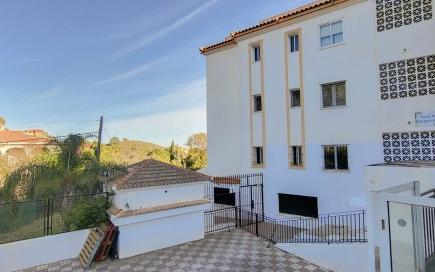
There are hundreds of reasons you might want to move and buy a property in Spain: to enjoy your retirement in the sun, to start a new life in a welcoming Spanish community with your family, or to work in and explore a new culture. Unfortunately, living in Spain after Brexit is much harder for Britons than it once was; if you hope to stay in Spain for longer than 90 days, you will now need to secure a visa or permit for the duration of your stay, as well as securing healthcare coverage and ensuring that you are registered to pay the appropriate taxes.
But that doesn’t mean that it isn’t still possible to move to Spain after Brexit; and Britons prepared to put in the work to secure the appropriate visas are reaping the rewards of the Spanish lifestyle they have always dreamt of. If you’re wondering whether it’s still possible to move to Spain after Brexit, and if it’s still the right decision for you, then here’s everything you need to know:
The Paperwork You Need to Move to Spain After Brexit
The main thing you need to know is that it is still possible to move to Spain after Brexit, but from 2021, you will be treated like a non-EU, or third country, national when you make your application. That means that you will no longer be able to simply pack a suitcase, buy a house in Spain, and make the move. The freedom of movement that Britons enjoyed as part of their EU membership is a thing of the past. Instead, you will have to abide by much stricter rules and regulations, including:
- Applying for a visa or residency permit via the Spanish Embassy in London. There are many different visa options available: if you are retiring to Spain then the non-lucrative visa might be the best choice for you, whilst if you have considerable financial means then the Golden Visa would be a viable choice.
- You must have a private healthcare policy in place before you make your visa application, and be prepared to disclose both your financial and employment status
- If you want or need to work during your time in Spain then there are work and business visas available, but the criteria for securing one of these is very tough, and if there is a suitable EU candidate for a role then you may not be eligible.
- If you are interested in studying during your time in Spain then a student visa might also be a good option for you.
Securing a Spanish Residency Card
As well as getting a visa to enable you to move to Spain, as soon as you arrive in the country you will also need to apply for a Spanish Foreign Residency card. This is called the TIE (Tarjeta de Identidad de Extranjero) card, and you must secure it within one month of arriving in Spain, or your right to remain in the country will be invalidated. If you were already living in Spain before Brexit took place then your right to remain will be in place, but you are encouraged to apply for a biometric TIE card as soon as possible, in lieu of the existing green card. This is easier to use, and contains more information about you then the old green card system.
Ensuring You Have Adequate Healthcare Coverage
As mentioned above, one of the requirements for Britons moving to Spain in a post-Brexit world is that you have an adequate level of healthcare coverage. This can be either through public healthcare (if you are eligible because you are contributing to the national social security system), or by purchasing a private healthcare policy. You should ensure that your healthcare covers both health and dental needs, and that any pre-existing conditions or medications that you need will be covered too. It is important to choose the best healthcare option for you carefully, and that your policy is in place before you move to Spain.
Driving in Spain
Another factor to consider if you choose to move to Spain after Brexit is whether you would like to drive when in the country, or whether you will be happy to rely on the nation’s excellent public transport system. If you choose to drive in Spain then you will no longer be able to do so using your British driving license, unless you registered your intent to do so before the Brexit transition period ended. Whilst there is hope that a reciprocal driving agreement between Spain and the UK may come into force in the future, right now if you are a Briton hoping to drive in Spain then you will have to sit both the theory and practical elements of the Spanish driving test in order to secure a Spanish driving license.
It is worth noting that, whilst the theory test can be taken in either English or Spanish, the practical exam can only take place in Spanish, so, it would be wise to have at least some fundemental Spanish language skills.
The Practical Side of Moving to Spain
As well as securing the paperwork you need to move to Spain, you’ll also need to navigate the new rules surrounding physically moving your belongings to Spain in a post-Brexit world. You will still be able to move your posessions, and even your vehicle to Spain but you should be careful not to fall foul of new rules surrounding importing food and plants into the EU from a non-EU country: that means those beloved pot plants might have to be left behind!
There is a lot to consider when deciding whether moving to Spain post-Brexit is the right choice to you, and it is clearly more complicated to move now than it was before the transition period ended. But that doesn’t mean that it isn’t an achievable goal: the quality of life in Spain remains amongst the best in Europe, the weather is almost universally attractive, and the cost of living remains affordable. Moving to Spain is still a very attractive proposition for Britons, and one that we feel is very much worth the investment.
Are you thinking of taking the plunge and moving to Spain? There’s plenty of wonderful reasons to make this beautiful country your home! Why not let our local property experts help you with your property search: get in touch today. We’re perfectly placed to help you turn your dreams of Spanish homeownership into a reality.

 English
English Español
Español Deutsch
Deutsch Français
Français Svenska
Svenska Nederlands
Nederlands Italiano
Italiano Norsk
Norsk Русский
Русский


































